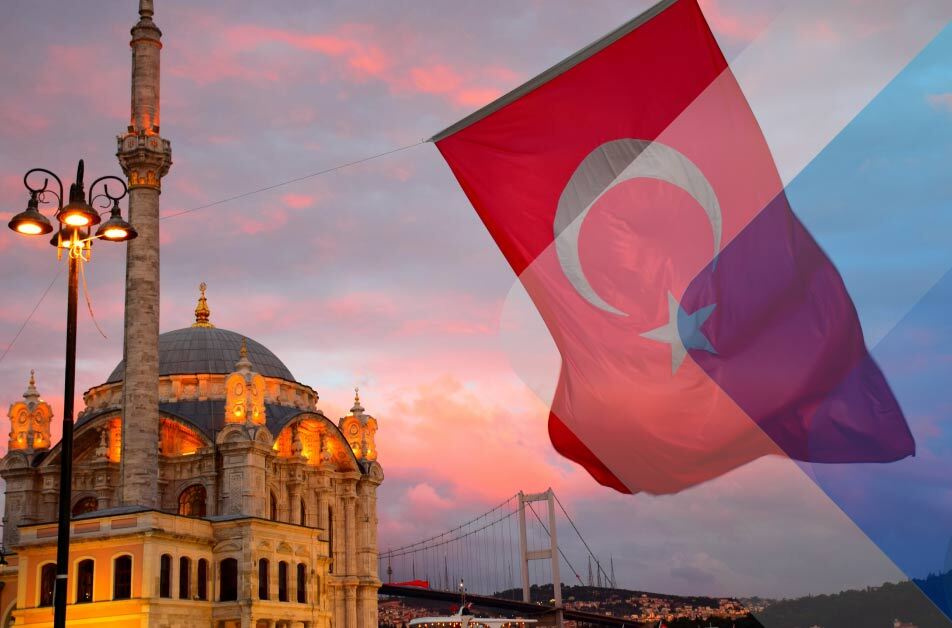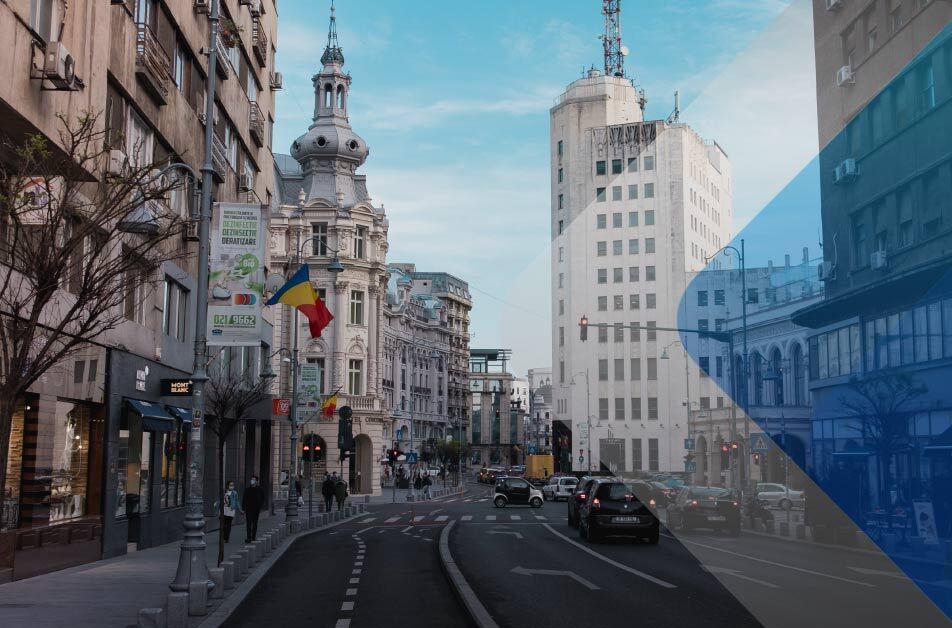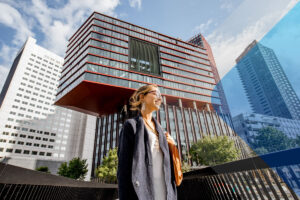Employer Of Record in the Philippines
We make it easy and painless to expand your business into the Philippines. Forget about dealing with local regulations, confusing tax laws and international payroll management. We take care of all that so you don't have to.
Accelerate your growth into the Philippines
compliantly and hassle-free
How we can help you expand in the Philippines
As your EOR in the Philippines we’d help you expand by hiring employees and running their payroll without establishing a local branch office or subsidiary.
Your candidate is hired by a PEO in the Philippines provider in accordance with local labor laws and can be onboarded in days instead of the months it typically takes. Shortly after, your new employee will be working for you, just like any other member of your team.
Expand to the Philippines with Serviap Global
Through our PEO and EOR services, you can hire qualified talent in your industry without the trouble of opening your own legal entity.
In just a few days, you can easily and safely build a presence in the Philippines being sure that your staff will be hired in compliance with labor and tax regulations.
Quick Facts
Currency:
Philippine Peso (PHP)
Capital:
Manila
Payroll Cycle:
Monthly
Language(s):
Filipino, English
The Philippines country facts
The Republic of the Philippines is an archipelagic country with over 7,640 islands. It is situated in the Pacific Ocean just below Southeast Asia. The Philippines is a multinational state with diverse cultures and the city of Manila is its capital.
The country is considered an emerging market with great progress in the service and manufacturing industries with an official language of Filipino and English. English is widely spoken, even in remote areas and the greater part of the population is Christian. Because of previous colonization, people in the Philippines are influenced by Spain, Japan, and the United States but the Philippines became an independent country in 1946. Despite this it is also a member of the United Nations, the World Trade Organizations, and the Association of Southeast Asian Nations.
The Philippines has a large pool of young citizens which makes its workforce malleable and dynamic. It also has a strong consumer base and many major cities which are Quenzon City, Manila, Davao City, Caloocan, Cebu City, Zamboanga City, and Taguig.
The economy
The Philippines have experienced a recent strong and rapid economic growth. The service economy makes up 60% of the GDP. An important part of the workforce is its ability to act as a center for outsourcing businesses but many Filipinos work abroad and send money home. The Agricultural sector employs about 25% of the workforce, with rice, corn, and coconut making up most of the important crops. The country also exports textiles, minerals, and electronic products. This country also has its own currency, the Philippine peso (PHP).
Small and medium enterprises
Small and medium enterprises (SMEs) account for 99.6% of all companies and employ 60% of the workforce. There are 952,969 SMEs and 4,651 large companies in the country 88% of whom currently operate at the micro level. The main SME industry sectors are wholesale and retail, motor vehicle repair, food services, manufacturing and financial activities.
Starting a business
Each year, there are about 13 thousand new businesses opening in the country, and that has been the case for the last 15 years. The typical business structures provided are partnerships and corporations. To begin, you will need to search the name of your business in the Business Name Registration Site to make sure it’s not already taken. You will apply for a company incorporation where you will need to provide a copy of your passport and a special investor residence visa. You will need to provide your bylaws, pay a fee, and provide proof of payment. You will then receive a Taxpayer Identification Number. You will need to register your business with the Bureau of Internal Revenue. Some businesses are not open to foreigners, so it is important to contact the business registration office. Finally, you will need to register with the Social Security System and the Home Development Mutual Fund.
Payroll
The employee contributions are 4% for the Social Security System, 1-2% for the Home Development Mutual. Fund, 1.75% for the Philippine Health Insurance Corporation and 225 PHP per month for the Provident Fund. The employer’s contributions are 8% for the Social Security System, 1.75% for the Philippine Health Insurance Corporation, 2% for the Home Development Mutual Fund, and 425 PHP per month for the Provident Fund. To summarize, the employee pays about 7.75% of her income and the employer pays 11.75% to government support schemes.
| Minimum Wage | The minimum wage is 537 PHP per day. |
| Payroll Cycle | Bimonthly |
| 13th Month Salary | Paid during December |
| Wages | The median salary3.994 euros per month |
| Overtime | Overtime is paid at 125% of regular pay. |
Leaves of Absence Employees have the right to paid absences for the following things: | • Vacation leave: After completing one year of employment, an employee can re- quest 5 days of paid leave. • Sick Leave: There is no paid sick leave. • Maternity Leave: A female can receive the base 5 days as maternity leave and can then add 105 days of paid leave (120 days if she is a single moth- er). • Paternity Leave: The father can benefit from 5 days of paid leave from the time of birth. • Domestic Violence Leave: Women and children who are victims are entitled to up to 10 days of leave. • Gynecological Disorders: Women who have worked for 6 months can receive up to two months leave due to gynecological reasons. |
Tax advantages
Under the CREATE law, you can benefit from an Income Tax Holiday (ITH) for 4 to 7 years. You can subsequently pay a flat 5% income tax for the next 10 years. Additional deductions include 10% for buildings, 20% for machinery and equipment, 50% for labor expense, 100% for Research and Development, 100% for training, 50% for domestic input, and 50% for power expense. You can also benefit from a VAT exemption on importation.
Human Talent
It is estimated that there are 1.2 million unemployed people in Honduras providing a large pool for employers to draw from. Low wages and the need for good jobs make Honduras attractive for outsourcing.
Renewable Energy
The Philippines creates 26.44% of its energy from renewable technology. The country wants to increase its renewable energy technology to 50% and reduce its carbon emission by 70%, all by 2030. There is a good opportunity for growth using solar, wind, geothermal and biomass. The country is highly invested in renewable technologies for a simple reason: it is vulnerable to the effects of climate change because of its geography.
Business Culture
Filipinos have been greatly influenced by the western culture and the Christian religion. Incredibly, the Filipino people are the third largest group of people who speak proper English.
- Quite Relaxed
You will find them much more relaxed than their Asian counterparts. They prefer face-to-face meetings instead of email or zoom meetings and socialization is very important and you should expect lengthy introductions. - All About Hierarchy
They will still honor the business hierarchy which will help you decide the proper decision maker. - Physical Contact
They typically shake hands and at times will pat you on the arm.
Food Culture
Fish, rice, and vegetables are staple foods. Food preparation is based on Japanese, Spanish, and Chinese cultures and Filipinos traditionally eat with their hands.
You will find Filipino cuisine to be full of flavor. They will readily use garlic, ginger, coconut, and onions. Vegetables are also essential. They are often steamed or stir-fried. They love beer and will readily eat flan. A favorite dish is “Adobo” which is a mixture of stewed meat, soy sauce, peppercorn and bay leaves served on rice.
Population
The population of the Philippines is 109 million. Beside English and some Spanish, the most spoken languages are Tagalog and Cebuano. Most Filipinos descend from Malaysia but there are many different ethnic groups and the urban population is about 47% and the literacy rate in the country is 99.08%.
They are very resilient people who are also confident spenders, for those reasons, the United States in particular has enlisted the help of its workforce on many fronts. In fact, the Filipino people are known for their problem- solving skills and the city of Manila is predicted to become one of the next world centers for innovation.
Geography
The Philippines is the world’s fifth largest island country. It is situated in the western Pacific Ocean. It has three main islands: Luzon, Mindanao, and Visayas and is about 500 miles from the coast of Vietnam. The most populated city is Quenzon, but the capital is Manila.
The islands are primarily made up of mainly volcanic rock, these mountain ranges follow a north to south direction. There is relatively little volcanic activity on this island country, but many rivers which are the Cagayan, Agno, Pampanga, Pasig, Bicol, the Mindanao, and Agusan. The climate is tropical and the many mountains and valleys are still heavily forested and home to thousands of beautiful flowers.
- Makati City
This city is considered the “wall street” of the Philippines, and a center of commerce. There are many young professionals in the city, and it is ahub for tourists. This is the number one business location for ambitious start-ups because of its economic stability. - Quezon City
This city has been voted the most business friendly local government unit in the country, and is an ideal location for young entrepreneurs. Schools, business centers and residential establishments are found here and this city has a potential for fun, convenient and culinary businesses. Furthermore, the government has set up a one stop shop to easily complete the process of registering and establishing a business in one hour. - Cebu City
This is a top tourist destination, and the country’s biggest trading capital. This is home to several I.T. businesses and international outsourcing offices. But there are many other successful businesses in the area. Also, the top universities and colleges are in this area, so there is a high population of students. Owners of goods and services can benefit from its booming travel industry and growing tourist population. - Davao City
This city just set the record for the biggest number of businesses brought into the area. Igt is the safest city in the country, and has a stable economy with political sectors that boost investor confidence. This city has a rich amount of natural resources and convenient accessibility to transport. This is a great city of agriculture, mining, fishing, palm oil and tourism.
General Highlights
| Year | 2022 |
| Country | The Philippines |
| Capital | Manila |
| Num. States / Provinces | The Philippines is comprised of 81 provinces |
| Language | Filipino English |
| Local Currency | Philippine Peso |
| Major Religion | Christianity |
| Date Format | dd/mm/yyyy |
| Thousands Separator Format | 999.999.999.99 |
| Country Dial Code | +63 |
| Time Zone | GMT+8 |
| Population | 109.6m |
Border Countries | Shares maritime borders with Taiwan, Japan, Palau, Indonesia, Malaysia, Brunei, Vietnam, and China. |
| Continental surface | 115,831 mi² |
Fiscal Year | Must be 12 months, some companies honor January 1 to December 31, others March 31 to April 1 |
| VAT % | 12% |
| Minimum Wage | 537 pesos a day |
| Taxpayer Identification Number Name in the country | TIN |
| Current President | Rodrigo Duterte |
What you need to know about employing personal in the Philippines:
Laws and Agencies that regulate labor relationships
The Philippines follows The Labor Code which is a law that governs employment practices and relations. It was enacted in 1974 and prescribes laws for hiring, termination, work conditions, hours and overtime, bene- fits, and guidelines for unions and collective bargaining.
| Laws | Brief Description |
The Constitution of the Republic of the Philippines | Signed in 1987 this allows the right to strike and negotiate, security of tenure, work conditions, the right to a living wage, participation in police that affects the workers’ rights and benefits, and a just share in the fruits of production. |
| The Labor Code | The Labor Code in the Philippines is a code that governs the laws related to employment. |
| The Department of Labor and Employment (DOLE) |
This agency enforces employment laws. |
| Minimum Wage Law | With this law minimum wage varies across the country and it is set by the Regional Tripartite Wages and Productivity Board. |
Exempt Employees | Certain employees are not entritled to overtime pay: • Government Employees • Managerial employees, officers or managerial staff • Field personnel • Family of the employer who are dependants • Domestic helpers or personal service members of others • Employees paid by results as determines by the Secretary of the Philippine Department of Labor and Employment (DOLE) |
| Occupational Safety and Health Standards | Employees must have a workplace free of hazard, give safety instructions in all appropriate cases, comply with the Occupational Safety and Health Standards and use only approved equipment. |
Medical Checks | Pre-employment medical checks should be conducted upon hiring to prevent dangerous circumstances from occurring. Plus, an annual examination. |
Discrimination | The Labor Code provides equal work opportunities to all regardless of sex, race or creed. And the Women In Developing and Nation Building Act affords the right for equal opportunity to women. This act makes it unlawful to prejudice a woman due to marriage or pregnancy. |
| Anti-Sexual Harassment Act of 1995 | Provides that a woman canot be sexually harrassed in the work place and that an employer has a duty to deter this from happening. |
Organization membership – | Some are: Asian Development Bank (ADB), Asia-Pacific Economic Cooperation (APEC), Asia-Pacific Telecommunity (APT), Association of Southeast Asian Nations (ASEAN), Association of Southeast Asian Nations Regional Forum (ARF), Bank for International Settlements (BIS), Colombo Plan (CP), East Asia Summit (EAS), Food and Agriculture Organization (FAO), Group of 24 (G24), Group of 77 (G77), International Atomic Energy Agency (IAEA, International Bank for Reconstruction and Development (IBRD), International Chamber of Commerce (ICC), International Civil Aviation Organization (ICAO), International Criminal Court (ICCt) (signatory), International Criminal Police Organization (Interpol), International Development Association (IDA), International Federation of Red Cross and Red Crescent Societies (IFRCS), International Finance Corporation (IFC), International Fund for Agricultural Development (IFAD), International Hydrographic Organization (IHO), International Labour Organization (ILO), International Maritime Organization (IMO), International Mobile Satellite Organization (IMSO), International Monetary Fund (IMF), International Olympic Committee (IOC), International Organization for Migration (IOM), International Organization for Standardization (ISO), International Paralympic Committee (IPC), International Red Cross and Red Crescent Movement (ICRM), International Telecommunication Union (ITU), International Telecommunications Satellite Organization (ITSO), International Trade Union Confederation (ITUC), Inter-Parliamentary Union (IPU), Multilateral Investment Guarantee Agency (MIGA), Nonaligned Movement (NAM), Organisation for the Prohibition of Chemical Weapons (OPCW), Organization of American States (OAS) (observer), Pacific Islands Forum (PIF) (partner), Unión Latina, United Nations (UN), United Nations Conference on Trade and Development (UNCTAD), United Nations Educational, Scientific, and Cultural Organization (UNESCO), United Nations High Commissioner for Refugees (UNHCR), United Nations Industrial Development Organization (UNIDO), United Nations Integrated Mission in Timor-Leste (UNMIT), United Nations Mission in Liberia (UNMIL), United Nations Mission in the Sudan (UNMIS), United Nations Operation in Cote d’Ivoire (UNOCI), United Nations Stabilization Mission in Haiti (MINUSTAH), Universal Postal Union (UPU), World Confederation of Labour (WCL), World Customs Organization (WCO), World Federation of Trade Unions (WFTU), World Health Organization (WHO), World Intellectual Property Organization (WIPO), World Meteorological Organization (WMO), World Tourism Organization (UNWTO), World Trade Organization (WTO) |
Social Security | Under the Social Legislations employees and employers must contribute to the Social Security System, Philippine Health Insurance Corporation (PhilHealth) and Home Development Mutual Fund (Pag-IBID Fund). |
Key Tax and Labor Authorities
| The Department of Finance | This is a government institution that carries out fiscal policies. |
Bureau of Internal Revenue | This bureau collects taxes and enforces penalties when laws are not followed regarding national revenue. |
Bureau of Treasury | This assists in the formulation of policies for borrowing, investment capital market development, and fiscal and financial policies. |
Labor Contracts
Contracts can be verbal or written | A contract must include the following: Following are some of the usual parts of an employment contract. • Job position and status • Job description • Pay • Employee benefits • Length and condition of probationary period, if any • Periods of notice • Code of conduct • Employee grievance mechanism • Company policies |
Types of Employment | • Regular employment: An individual is employed as a regular employee unless they fall under another category. Regular employees can undergo a probationary period. • Project Employment: The employee is employed for a period of fixed time for a specific undertaking. When regularly rehired for the same project the employee can become a regular employee. • Seasonal Employment: When work is performed at certain times for the year the employee is seasonal. • Casual Employment: When the employee is engaged to perform incidental work for a finite period. If employed for one year of service they are considered a regular employee. • Fixed-Period Employment: When the commencement and termination date are set this is fixed-period employment. This is highly restricted and must be knowingly and voluntarily agreed upon, or both the employee and employer are on equal terms. This is often for highly intelligent individuals or technical positions. |
Work Hours | Work hours cannot exceed eight hours a day unless there is a valid compressed work week arrangement. Workers are entitled to overtime past this of their regular wage plus 25%, but this varies on a rest day, holiday, or during 10pm – 6am. One rest day is required a week unless an exempt employee. |
Annual Taxable Income
Foreigners are called resident aliens and are taxed the same way as regular residents. This taxation is done at the source of the income, sometimes at a 15% base before any other deductions. In 2022 income tax rates will be further reduced, except for those earning above 8 million pesos.
| Annual Taxable Income in ₱ | Tax Rate |
| 0-250,000 | Exempt |
| 250,000-400,000 | 20% |
| 400,000-800,000 | 30,000+25% |
| 800,000-2,000,000 | 130,000+30% |
| 22,000,000-8,000,000 | 490,000+32% |
| 8,000,000 and above | 2,410,000+35% |
Corporate Tax Rates
Corporate tax rate or CIT applies to domestic corporations. The Corporate Recovery and Tax Incentives for Enterprises Act (the “CREATE Law”) of March 2021 lowered the corporate income tax to 25% and the imposition of MCIT was reduced from 2% to 1% from 1 July 2020 to 30 June 2023.
The Law also provides a lower corporate income tax of 20% for corporations with net taxable income not exceeding PHP5 million and with total assets not exceeding PHP100 million. This excludes land on which the corporation’s office, plant and equipment are placed.
Public Holidays
The Labor Code provides for public holidays that are observed in St Kitts and Nevis.
| Date 2022 | Holiday Name |
| 1 January | New Year’s Day |
| 1 Feb | Lunar New Year |
| 9 Apr | Bataan Day |
| 14 Apr | Maundy Thursday |
| Friday before Easter Sunday, 15 Apr | Good Friday |
| 1 May | Labour Day |
| 2-3 May | Eid al-Fitr |
| 13 Jun | Independence Day |
| 9-10 Jul | Eid al-Adha |
| 29 Aug | National Heroes Day |
| 30 Nov | Bonifacio Day |
| 8 Dec | Feast of the Immaculate Conception |
| 25 Dec | Christmas Day |
| 30 Dec | Rizal Day |
Termination
| Type of Termination | Brief Description |
Justified Dismissal | An employer can only dismiss an employee if there is legal aka just reasons. But an employee may terminate his employment for any reason. The employer must provide a written notice and afford the employee an opportunity to be heard, where after another written notice must be given. This notice must be given to each affected person and the DOLE at least one month before. If the reason is disease there must also be a certification by a competent public health authority that this disease cannot be cured within a period of 6 months even with treatment. Some just reasons are: • Serious misconduct • Wilful disobedience in connection to work • Gross and habitual neglect of duties • Fraul, or wilful break of trust • Commission of a crime or offense against the employer or immediate member of his family or authorized representative • Installation of labor-saving devices • Redundancy • Retrenchment to prevent losses • Closes or cessation of operation of the establishment or undertaking • Disease, where the continued employment would afflict other employees |
| Unjust Cause | If an employee is unfairly let go they are able to receive nominal damages, the amount is subject to the discretion of the court. |
Other forms of compensation upon termination include:
Severance pay is called separation pay and is equivalent to half a month’s salary for every year the employee has been in service. This depends on how the employee was terminated
You might be interested in reading...
Your one-stop global hiring solution. Secure, reliable, compliant

Premium Support
No matter how big or small, we are ready to answer all your questions- anytime, anywhere.

Regional expertise
Our team of in-country experts help you navigate new markets and cultural nuances

Top-tier Benefits Packages
Great talent deserves great benefits. We offer a competitive range of benefits so that you only attract top-tier talent worldwide.

You remain 0% liable
Shift the worry from your shoulders to ours! We stay on top of regulations so you’re always 100% complaint with local laws







